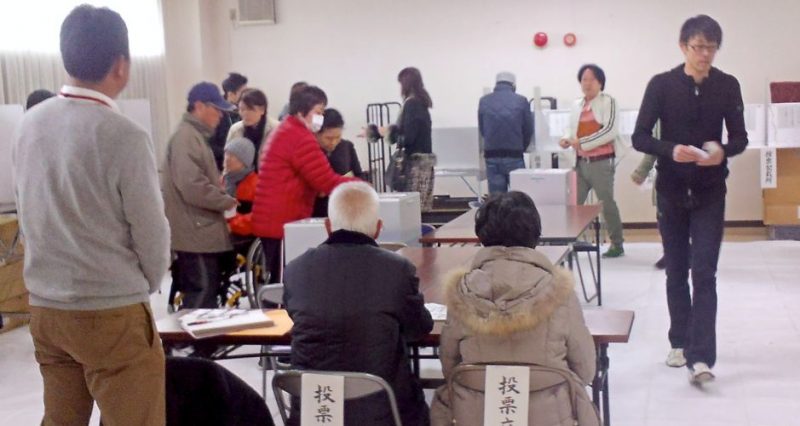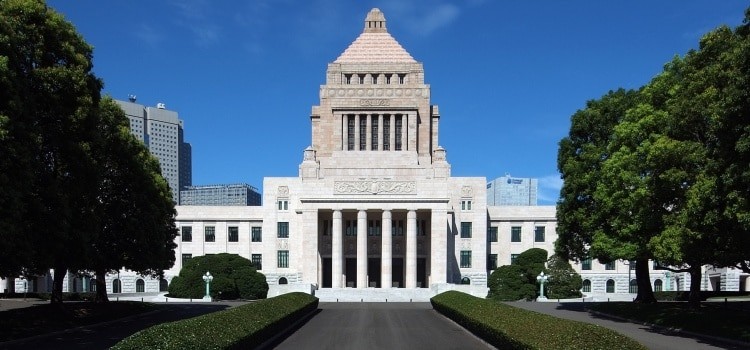Politics is a fundamental aspect of Japanese society, as it is in other nations around the world. For those who are learning Japanese and interested in politics, it is essential to know the language's political vocabulary. In this article, we will explore the main topics and subtopics related to politics in Japan and introduce you to relevant Japanese vocabulary.
Understanding political vocabulary in Japanese is essential for anyone wanting to delve deeper into the study of the language and Japanese politics. Mastering these terms can help improve communication and understanding of news and political debates in Japan.
We also recommend reading:
Índice de Conteúdo
Political System and Government
The Japanese political system is based on a constitutional monarchy, in which the Emperor (天皇, Tennō) has a primarily ceremonial role.
The Japanese Parliament consists of two chambers: the House of Representatives (衆議院, Shūgiin) and the House of Councilors (参議院, Sangiin).
The Prime Minister (首相, Shushō) is the head of government and leads the Cabinet (内閣, Naikaku), which is composed of several ministers (大臣, Daijin) responsible for different political and administrative areas.
Here are some keywords related to the Japanese political system and government:
- 知事 (Chiji) - Governor
- 大統領統領 (dawyouryou) - President of the Republic
- 副大統領 (Fuku Dawarryou) - Vice President
- 即位式 (Sokuishiki) - Entronization ceremony (coronation)
- 即位の礼 (Sokui no King) - Ceremony, CORCATION CELEBRATION
- 国会 (Kokkai) - Parliament
- 衆議院 (Shūgiin) - Chamber of Deputies
- 参議院 (Sangiin) - Board of Directors
- 内閣 (Naikaku) - Cabinet
- 首相 (Shushō) - Prime Minister
- 大臣 (Daijin) - Minister
- 総理大臣 (Sōridaijin) - Prime Minister
- 天皇 (Tennō) - Emperor
- 憲法 (Kenpō) - Constitution
- 政治 (Seiji) - Politics
- 総選挙 (Sōsenkyo) - general election
- 立法 (Rippō) - Legislation
- 行政 (Gyōsei) - Administration
- 司法 (Shihō) - judiciary
- 地方自治体 (Chihō jichitai) - local government
Political parties
Political parties in Japan play an important role in the political process. Some of the major political parties include:
- 自民党 (Jimintō) - Liberal Democratic Party (LDP)
- 民主党 (Minshutō) - Democratic Party (DP)
- 公明党 (Kōmeitō) - Komeito Party
- 社民党 (Shamintō) - Social Democratic Party (SDP)
- 共産党 (Kyōsantō) - Communist Party (JCP)
- 保守主義 (Hoshu shugi) - conservatism
- 進歩主義 (Shinpo shugi) - Progressivism
- 社会主義 (Shakai shugi) - Socialism
- 自由主義 (Jiyū shugi) - Liberalism
- 緑の党 (Midori no tō) - Green Party

Elections and Voting
Japanese elections take place regularly to choose representatives for the Houses of Parliament, regional governors and local mayors.
Electors (選挙人, Senkyonin) vote (投票, Tōhyō) for their preferred candidates in electoral districts (選挙区, Senkyoku). After the elections (選挙, Senkyo) are over, the votes are counted (開票, Kaiketsu) and the victorious candidates (当選, Tōsen) take office.
See some related words:
- 選挙 (Senkyo) - Election
- 投票 (Tōhyō) - vote
- 当選 (Tōsen) - Elected
- 落選 (Rakusen) - defeated
- 選挙区 (Senkyoku) - constituency
- 選挙人 (Senkyonin) - Voter
- 開票 (Kaiketsu) - polling
- 無所属 (Mushozoku) - Independent
- 立候補 (Rikkōho) - Candidacy
- 選挙運動 (Senkyo undō) - Election campaign
- 演説 (Enzetsu) - Speech
- 民意 (Min'i) - Public opinion
The article is still halfway through, but we recommend also reading:
Foreign Policy and International Relations
Foreign policy and international relations are important aspects of Japanese politics. Some keywords include:
- 外交 (Gaikō) - Diplomacy
- 国際関係 (Kokusai kankei) - International relations
- 外務省 (Gaimushō) - Ministry of Foreign Affairs
- 大使 (Taishi) - Ambassador
- 領事館 (Ryōjikan) - Consulate
- 国連 (Kokuren) - United Nations (UN)
- 同盟 (Dōmei) - Alliance
- 親善 (Shinzen) - Friendship
- 和平 (Wahei) - Peace
- 貿易 (Bōeki) - Business
- 経済制裁 (Keizai seisai) - economic sanctions
- 人道支援 (Jindō shien) - Humanitarian help
- 安全保障理事会 (Anzen hosho rijikai) - UN Security Council
- 世界貿易機関 (Sekai bōeki kikan) - World Trade Organization (WTO)
- 北大西洋条約機構 (Hokutaiseiyō jōyaku kikō) - North Atlantic Treaty Organization (NATO)

Internal politics and social issues
Domestic politics and social issues are also important topics in the Japanese political context. Some related terms include:
- 経済政策 (Keizai seisaku) - Economic policy
- 財政 (Zaisei) - Public finances
- 社会保障 (Shakai hoshō) - Social Security
- 教育政策 (Kyōiku seisaku) - Educational politics
- 環境政策 (Kankyō seisaku) - environmental policy
- 防衛政策 (Bōei seisaku) - defense policy
- 雇用政策 (Koyō seisaku) - employment policy
- 税制 (Zeisei) - Tax system
- 社会福祉 (Shakai fukushi) - social welfare
- 健康政策 (Kenkō seisaku) - health policy
- 移民政策 (Imin seisaku) - immigration policy
- 都市計画 (Toshi keikaku) - Urban planning
activism and protest
Activism and protests are also important elements in Japanese and global politics. Some related keywords are:
- 抗議 (Kōgi) - Protest
- デモンストレーション (Demonstrēshon) - Demonstration
- ストライキ (Sutoraiki) - Strike
- 反対運動 (Hantai undō) - opposition movement
- 圧力団体 (Atsuryoku dantai) - pressure group
- 市民活動 (Shimin katsudō) - civic activism
- 請願 (Seigan) - Petition
- シットイン (Shittoin) - Occupation
- ボイコット (Boikotto) - Boycott
- ピケ (Pike) - Picket
- 環境運動 (Kankyō undō) - environmental movement
- 人権運動 (Jinken undō) - human rights movement
I hope these additional words will help deepen your understanding of Japanese political vocabulary.







